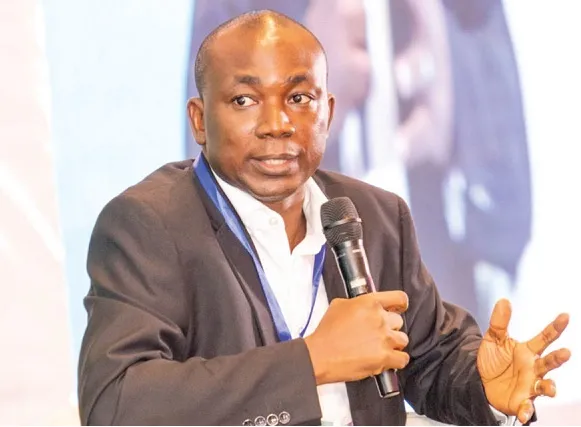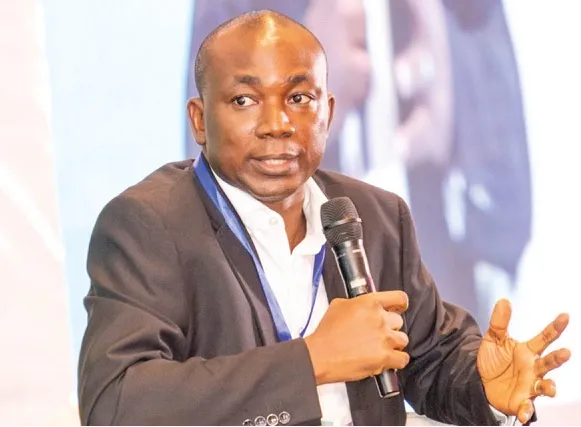
University of Ghana economist Prof. Godfred Bokpin has warned that Ghana’s policy managers have turned exchange rate management into a competition for political praise rather than a tool for building productive capacity, with billions of cedis spent defending the currency potentially better deployed in growth-generating sectors.
The Professor of Finance has consistently cautioned that the aggressive strengthening of the cedi is coming at great cost to the country, with policies sustaining it eroding private sector competitiveness and threatening environmental sustainability. His comments reflect growing concern that short-term currency gains are masking fundamental structural problems.
According to Prof. Bokpin, Ghana has become “too fixated on the exchange rate, rather than the fundamentals of the economy”, describing recent sharp currency movements as disruption rather than stability. He’s argued that policymakers treat a temporarily strong cedi as a political trophy, using it to project economic competence even when underlying fundamentals remain weak.
The economist explained that resources pumped into defending the currency could have been channeled into productive sectors to stimulate investment, create jobs, and expand domestic production. He warned that the drive to maintain a low exchange rate has contributed to environmental damage, noting that “people are dying, and we are destroying our water bodies, all because 32 million people are obsessed with a low exchange rate”, referencing illegal mining activities.
Prof. Bokpin drew comparisons with China’s economic strategy, noting that despite holding one of the world’s largest foreign exchange reserves, China has historically maintained a managed, stable exchange rate rather than chasing an artificially strong currency. That approach reflects strategic vision focused on long-term productivity, not reactionary obsession with a single indicator.
The drive to keep the cedi strong has drained liquidity, pushed interest rates higher, and weakened business confidence, conditions that ultimately hurt growth more than they help, he noted. Speaking at Prudential Bank’s Cedi Appreciation Seminar, he said “the kind of interest rate we have can only fund imports and not production or manufacturing”, highlighting how currency policy has broader economic consequences.
Prof. Bokpin acknowledged that the Central Bank has been targeting the exchange rate but noted the pace of appreciation was “too aggressive to enable planning and the entire economy to adjust effectively”. He emphasized that economic stability doesn’t mean a fixed exchange rate but rather predictable and moderate variations that allow businesses to plan.
Ghana’s approach, he argued, reflects short-term thinking that focuses on symbolic wins at the expense of long-term resilience. He warned that “any sharp appreciation that is not backed by productivity or structural reforms reverses in a matter of months. It is not sustainable”.
The economist has consistently emphasized that real economic strength isn’t about short-term numbers but about creating jobs and opportunities. While he’s credited the government and Bank of Ghana for fiscal discipline and monetary coordination, he’s cautioned that these gains must translate into affordable financing for businesses and productive investments.
Prof. Bokpin has also highlighted that “Ghana’s economic orientation is not structured to promote exports but to encourage imports”, pointing to deeper structural issues that exchange rate policy alone cannot fix. He noted that the financial system itself is designed to enable imports rather than production.
His warnings come as Ghana’s cedi has experienced significant volatility in 2025. The currency appreciated sharply from GHS 15.45 in March to GHS 10.45 by July before trending back upward to GHS 12.20 by September, illustrating the cyclical pattern he’s described.
Prof. Bokpin urged policy managers to focus on what’s economically right rather than what looks good politically, stressing that short-term optics are undermining development and real sector confidence. He’s called for Ghana to strengthen economic fundamentals and institutions rather than relying on exchange rate management as the primary tool for demonstrating economic competence.
The challenge, according to the economist, is thinking long term and building productive capacity rather than celebrating temporary currency gains that may not reflect genuine economic transformation. Without addressing structural weaknesses in manufacturing, agriculture, infrastructure, and the financial sector’s lending patterns, Ghana risks remaining import-dependent regardless of exchange rate levels.
